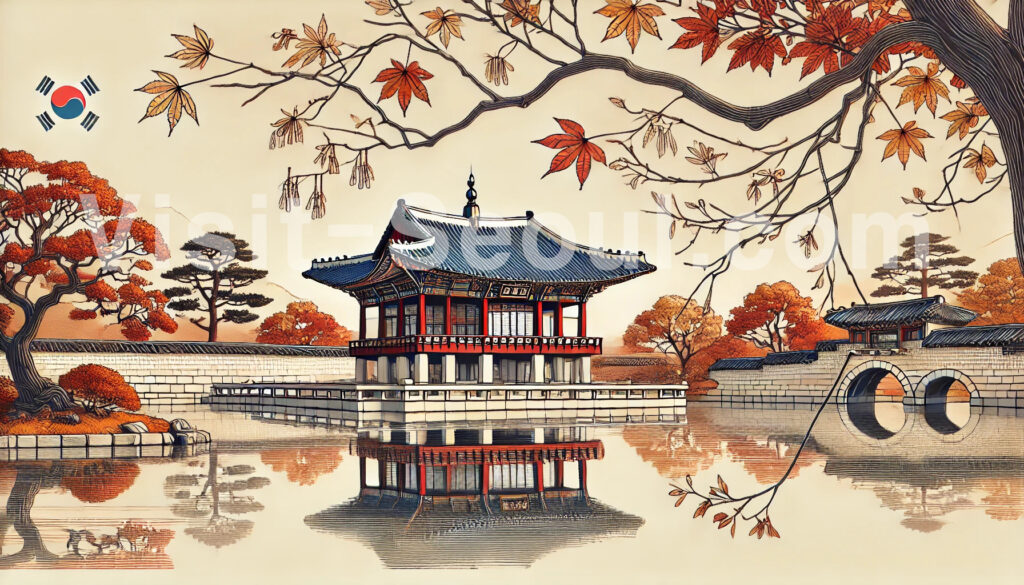
If there’s one place in Seoul where you can truly feel the heartbeat of Korea’s rich history and artistic heritage, it’s Gyeongbokgung Palace. Often described as a gateway to the past, this magnificent palace is more than just a historical site—it’s a living, breathing masterpiece that exudes beauty at every turn. Stepping into Gyeongbokgung is like slipping through time into an era where kings ruled and artistry thrived.
A Visual Symphony of Traditional Architecture
Gyeongbokgung Palace, built in 1395, is the largest of Seoul’s Five Grand Palaces and showcases the zenith of traditional Korean architecture. The intricate designs, vibrant colors, and harmonious layouts are a testament to the craftsmanship of the Joseon era.
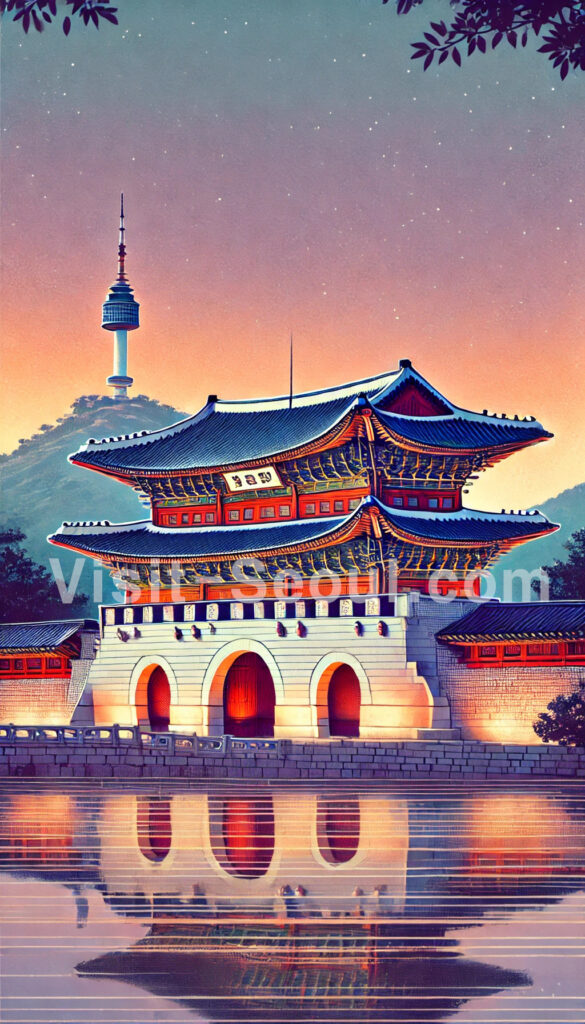
Architectural Marvels to Behold
| Palace Structure | Unique Features |
|---|---|
| Geunjeongjeon Hall | The majestic throne hall with a raised stone platform and twin roof, adorned with elaborate carvings. |
| Gyeonghoeru Pavilion | An exquisite pavilion set on 48 granite pillars, seemingly floating above a tranquil lotus-filled pond. |
| Hyangwonjeong Pavilion | A charming two-story hexagonal pavilion surrounded by lush gardens and connected by an arched bridge. |
| Gangnyeongjeon Hall | The king’s living quarters featuring delicate latticework and serene courtyards. |
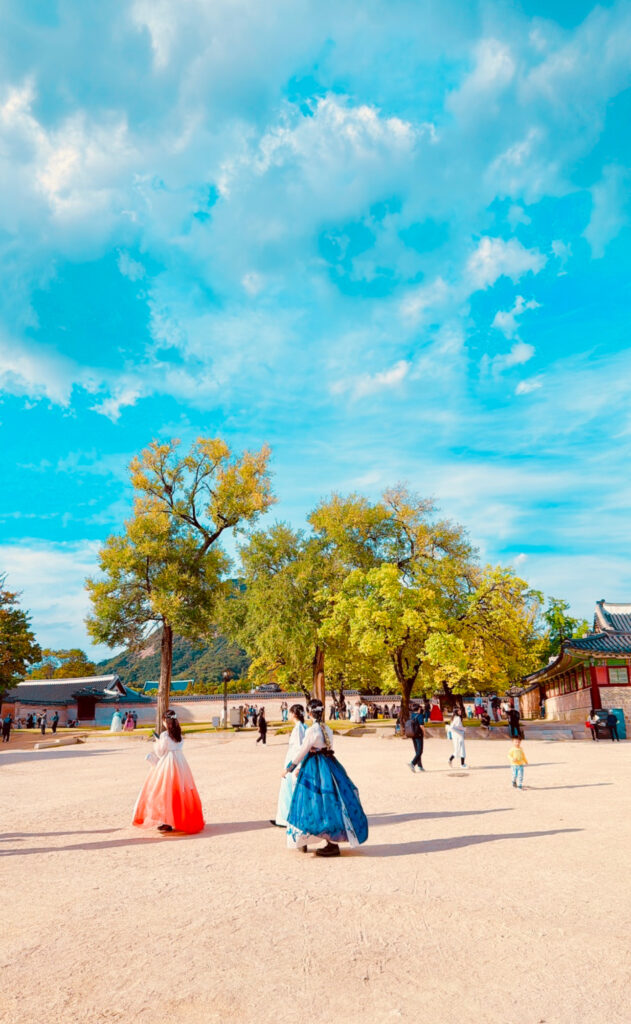
The Artistry of Dancheong
One of the most striking features of Gyeongbokgung Palace is the use of dancheong, the traditional Korean decorative coloring on wooden buildings. The vibrant patterns and colors not only enhance the aesthetic appeal but also carry cultural and symbolic meanings.
Dancheong Color Symbolism
| Color | Symbolism |
|---|---|
| Red | Prosperity and Passion |
| Blue | Hope and Eternity |
| Yellow | Earth and Centrality |
| White | Purity and Integrity |
| Black | Wisdom and Depth |
The meticulous application of these colors creates a mesmerizing visual experience, especially when sunlight dances upon the surfaces.
A Magical Atmosphere Through the Seasons
Gyeongbokgung Palace offers a different kind of beauty with each season, making every visit unique.
Seasonal Highlights
| Season | Atmospheric Beauty |
|---|---|
| Spring | Cherry blossoms envelop the palace grounds in a blush of pink, adding a romantic touch. |
| Summer | Lush greenery and blooming lotus flowers in the ponds create a vibrant and refreshing ambiance. |
| Autumn | Golden ginkgo leaves and fiery maple trees paint the palace in warm hues of red and orange. |
| Winter | A blanket of snow transforms the palace into a serene and mystical wonderland. |
Each season enhances the palace’s charm, offering endless opportunities for breathtaking photographs and peaceful reflection.
Immersive Experiences Amidst Beauty
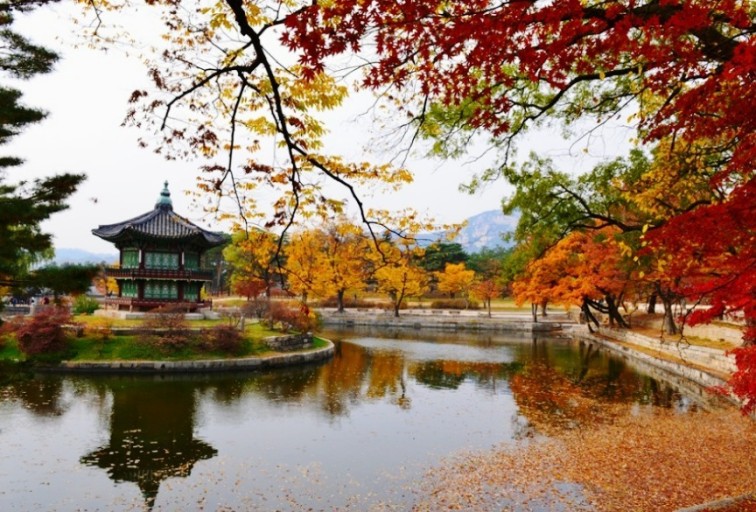
Beyond the visual splendor, Gyeongbokgung Palace provides immersive experiences that deepen your appreciation of Korean culture.
Must-Experience Activities
- Hanbok Wearing
- What: Dress in traditional Korean attire.
- Why: Enhance your experience and take stunning photos with the palace as your backdrop.
- Tip: Hanbok rental shops are available nearby, and wearing one grants you free palace admission.
- Royal Guard Changing Ceremony
- When: Held daily at set times.
- What: A colorful and ceremonial re-enactment of royal guard duties.
- Why: Offers a glimpse into royal traditions against the palace’s majestic setting.
- Nighttime Tours
- When: Seasonal availability.
- What: Explore the palace under the moonlight with beautifully illuminated structures.
- Why: Experience a different, almost ethereal, atmosphere.
The Harmony of Nature and Architecture
The palace gardens are thoughtfully designed to complement the architectural beauty, creating a harmonious blend of nature and human artistry.
Garden Features
| Element | Description |
|---|---|
| Lotus Ponds | Reflective waters adorned with lotus blossoms symbolize purity and create a calming effect. |
| Stone Bridges | Elegant bridges that not only serve a functional purpose but also add to the picturesque scenery. |
| Ancient Trees | Stately trees that have stood for centuries, witnessing the passage of time and adding gravitas. |
| Floral Arrangements | Seasonal flowers meticulously arranged to enhance the natural beauty of the surroundings. |
Strolling through these gardens, you’ll find yourself enveloped in a serene atmosphere that feels worlds away from the bustling city outside.
Capturing the Perfect Moment
To make the most of your visit and truly capture the palace’s beauty, consider these photography tips:
Top Photo Spots
| Location | Best For |
|---|---|
| Gyeonghoeru Pavilion | Reflections on the pond, especially at sunrise or sunset. |
| Hyangwonjeong Pavilion | Romantic shots with the pavilion framed by foliage and the arched bridge. |
| Geunjeongjeon Hall Courtyard | Grand architectural shots showcasing the scale and symmetry of the palace. |
| Palace Gates (Gwanghwamun and Heungnyemun) | Impressive entrances that capture the grandeur of the palace. |
Visitor Information
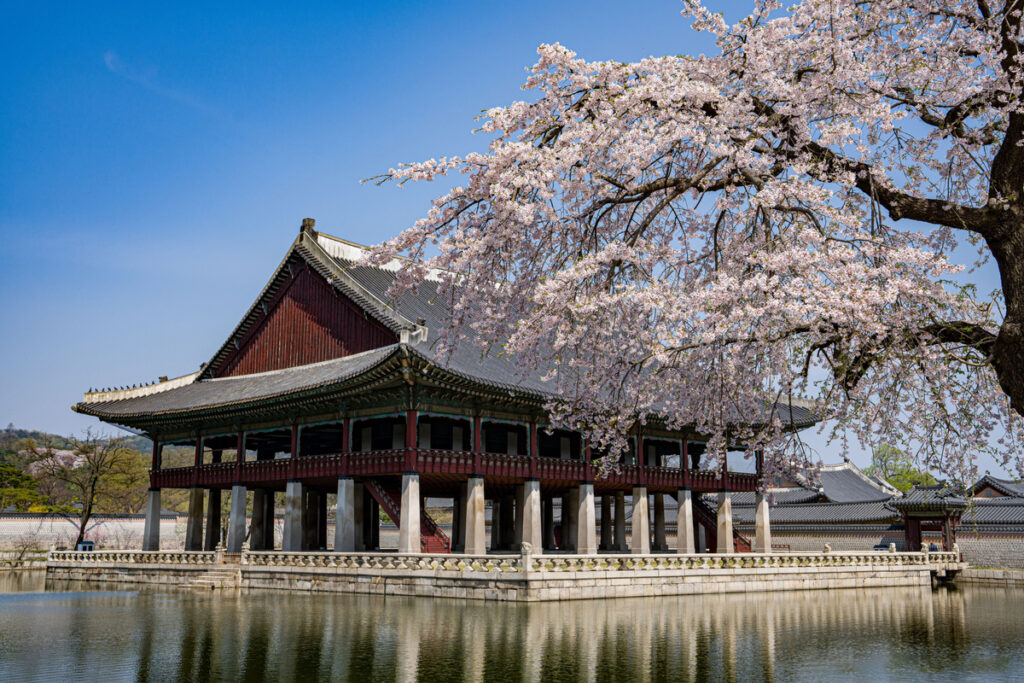
To ensure a smooth and enjoyable visit, here are some key details:
Operating Hours
| Month | Hours |
|---|---|
| March – October | 9:00 AM – 6:00 PM |
| November – February | 9:00 AM – 5:00 PM |
| Closed on | Tuesdays |
Admission Fees
| Category | Price (KRW) |
|---|---|
| Adults (19-64) | 3,000 |
| Children (7-18) | 1,500 |
| Children under 6 | Free |
| Hanbok Wearers | Free Admission |
Getting There
Gyeongbokgung Palace is conveniently located and easily accessible.
- Subway: Take Line 3 to Gyeongbokgung Station, Exit 5.
- Bus: Multiple bus routes stop near the palace.
Tips for Enhancing Your Experience
- Arrive Early: Beat the crowds and enjoy a more peaceful atmosphere.
- Guided Tours: Free guided tours in English are available and highly informative.
- Respectful Attire: Wear comfortable shoes and modest clothing, especially if participating in cultural activities.
- Stay Hydrated: Bring water, especially during hot months, as you’ll be spending a lot of time outdoors.
Final Reflections
Gyeongbokgung Palace isn’t just a place you visit; it’s a place you experience with all your senses. The beauty here isn’t just seen—it’s felt in the quiet moments, heard in the rustle of leaves, and sensed in the echoes of history that permeate the grounds. It’s a journey that leaves you with a deeper appreciation for Korea’s rich cultural tapestry.
Leave a Reply